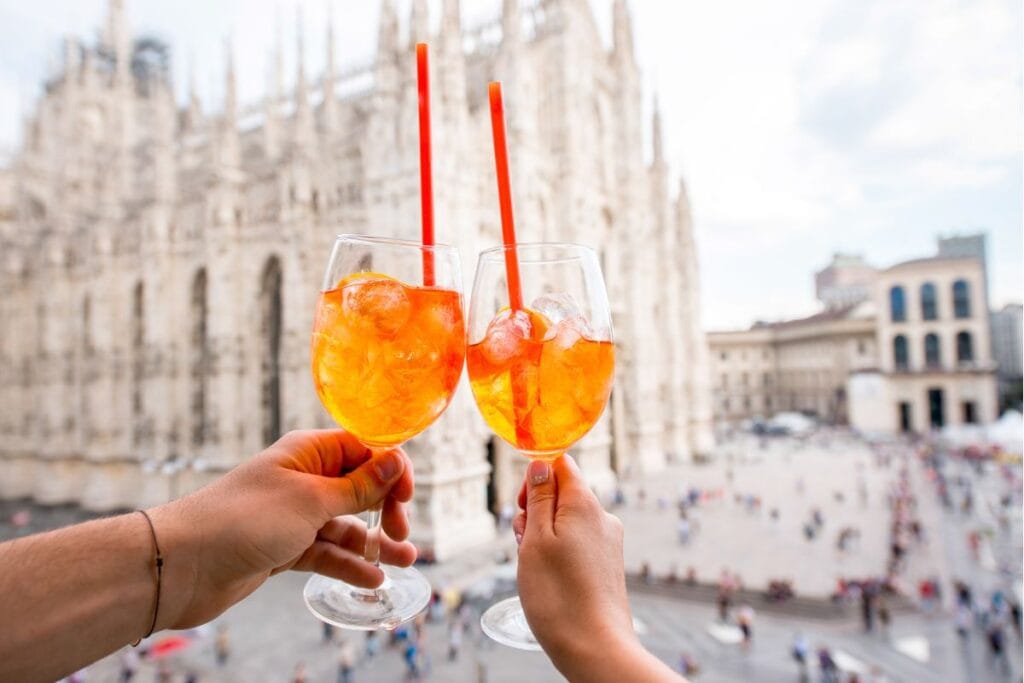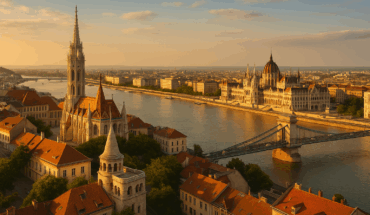Italy’s approach to alcohol consumption often surprises visitors, especially families traveling with teenagers. Unlike many countries with strict age restrictions, Italy maintains a more relaxed attitude toward drinking—particularly when minors are accompanied by parents. This guide explores the legal drinking age in Italy with parents, offering clarity on what’s permitted, cultural expectations, and practical considerations for families navigating Italian dining customs.
Italy is renowned for its wine culture and family-oriented dining traditions, making experiences around food and drink in Italy unique. Understanding the legal drinking age in Italy with parents ensures clarity for families traveling or living in the country. Despite the official minimum age of 18, minors may consume alcohol when accompanied by parents—a nuance that often influences practical behavior. This guide explains Italy’s alcohol regulations, the role of parental supervision, enforcement patterns, local variation, and cultural context. It provides a comprehensive, evergreen overview for those wanting clarity on family-friendly alcohol guidance in Italy.

What Is the Legal Drinking Age in Italy with Parents?
Italy technically sets the legal drinking age at 18 for purchasing alcohol independently. However, the law takes a different approach when minors consume alcohol under parental supervision. There is no minimum drinking age when a parent or legal guardian is present, allowing families to share wine or beer during meals without legal concerns.
This cultural practice stems from Italy’s longstanding tradition of introducing alcohol responsibly within family settings. Meals often include wine, and it’s common to see teenagers sipping diluted wine with parents at trattorias. The law reflects this social norm, focusing on education rather than prohibition. That said, public intoxication or irresponsible service to minors remains illegal regardless of parental presence.
Italy’s official minimum age for purchasing and consuming alcohol is 18. That applies to all types of alcoholic beverages including wine, beer, and spirits. Children under 18 are legally prohibited from buying alcohol. Adults or businesses selling to minors risk fines or penalties.
At the same time, Italian law allows supervised contexts where minors may drink in private or family settings. The concept of “legal drinking age in Italy with parents” refers to this exception, particularly for wine or beer consumed at a family meal. This nuance reflects Italy’s cultural familiarity with moderate drinking integrated into dining, under adult guidance.
How Italian Drinking Culture Differs from Other Countries
Italy’s approach contrasts sharply with nations like the United States, where the legal drinking age is strictly 21 without exceptions. In France, similar to Italy, minors may drink with parental approval, while Germany allows beer and wine at 16 without parental supervision. The UK permits alcohol consumption at home from age five, though purchasing laws remain strict.
What makes Italy unique is the seamless integration of moderate alcohol consumption into daily family life. Wine accompanies meals as naturally as bread, and the focus remains on appreciation rather than intoxication. This cultural context explains why laws accommodate supervised tasting—it’s viewed as part of culinary education rather than underage drinking.
Practical Considerations for Families
While legally permissible, parents should approach alcohol introduction thoughtfully. Many Italian families begin with sips of watered-down wine during special meals, gradually increasing exposure as teens mature. Restaurants typically serve house wine by the carafe, making it easy to control portions when sharing with older children.
Quality over quantity defines the Italian approach. Opting for a half-glass of regional wine with a pasta dish teaches appreciation better than unrestricted access. Parents remain responsible for ensuring consumption stays moderate—servers may refill glasses without asking, so clear communication helps maintain boundaries.
Governing Age Limits
The legal stance is clear: no person under 18 should purchase or be served alcohol in restaurants, bars, or stores. That said, the exception for underage drinking under adult supervision applies primarily within private settings or family meals, where parents or guardians are present.
Role of Parents and Guardians
Parental supervision is key to the exception. When a minor drinks alcohol at home or at a family table in a restaurant with parents, the law generally permits it. This reflects Italian cultural norms where a sip of wine with lunch is considered normal for older children within the family context.
Private vs Public Drinking
Public drinking laws restrict open alcohol consumption in streets or parks. But in restaurants—even those with outdoor seating—minors drinking with parents is usually tolerated. Enforcement focuses on public intoxication, not underage dining under supervision.
Regional Variations in Enforcement
Attitudes toward the legal drinking age in Italy with parents show subtle regional differences. Northern cities like Milan may adhere more strictly to the letter of the law, while rural villages maintain traditional family-style drinking customs. Tourist-heavy areas sometimes impose unofficial restrictions to avoid misunderstandings with foreign visitors.
Tuscany and Piedmont, as premier wine regions, often showcase the most relaxed attitudes, with wineries welcoming families for tastings. Conversely, urban nightlife districts may card younger-looking individuals regardless of parental presence after certain hours. Understanding these nuances helps families navigate different settings appropriately.
Common Misconceptions About Italian Drinking Laws
Several persistent myths cloud understanding of Italy’s alcohol policies. Some believe all alcohol is freely available to minors, when in reality only supervised consumption is exempt from age restrictions. Others assume bars must serve teenagers if parents approve, though establishments reserve the right to refuse service.
A major misunderstanding involves public spaces. While family meals at restaurants fall under the exception, unsupervised public drinking by minors remains prohibited. Some tourists mistakenly think parental permission allows open container laws to be ignored, which isn’t the case.
Tips for Responsible Family Drinking Experiences
Families embracing Italy’s drinking traditions can enhance the experience with simple strategies. Choosing wine-focused lunches rather than evening meals allows for more controlled introductions. Opting for lower-alcohol options like lambrusco or prosecco minimizes intoxication risks.
Engaging servers in conversation about local wines turns the experience into a cultural lesson. Many sommeliers enjoy explaining regional varieties to interested teens. Keeping water abundant on the table ensures proper hydration and pacing. Most importantly, parents should model moderate consumption, demonstrating alcohol as an accompaniment to food rather than a standalone activity.
Legal Implications for Foreign Visitors
Italy’s laws apply equally to tourists and residents regarding the legal drinking age with parents. However, families should consider their home country’s perspectives, especially when returning with minors who may have developed a taste for wine. Some nations have strict social services policies about underage alcohol exposure regardless of foreign legality.
Documentation proving parental relationship helps avoid misunderstandings in establishments unfamiliar with foreign family dynamics. Carrying passports or copies prevents unnecessary challenges, especially with older teens who might appear young adults. While rare, some upscale restaurants maintain their own policies exceeding legal requirements.
Factors That Affect Supervised Drinking Acceptance
Cultural Norms and Dining Context
In Italy, wine is embedded in meals and family life. Adults modeling moderate consumption during lunch or dinner shapes expectations. This context supports the acceptance of supervised underage drinking.
Appearance and Venue Type
Restaurants with formal settings or family clientele are more accepting of children sipping wine. Bars or nightclubs where patrons appear underage or unaccompanied may enforce stricter ID checks.
Local Enforcement Differences
While national law is uniform, enforcement varies. Larger cities or tourist hubs may be more vigilant about ID checks at bars. Private or rural restaurants are generally more flexible if minors are clearly under parental care.
Beverage Type and Alcohol Strength
Lower proof drinks such as wine or beer are more accepted when served with meals. Strong spirits or cocktails are less typical for minors, even with supervision.

Alternative Beverage Experiences for Families
For those preferring non-alcoholic introductions to Italian drinking culture, numerous options exist. Many vineyards offer grape juice tastings from the same vineyards as their wines. Cafés serve alcohol-free spritzes using Sanbitter instead of Aperol.
Traditional drinks like chinotto (a bitter citrus soda) or spuma (Italian cream soda) provide authentic local flavors without alcohol content. Even espresso culture offers a way to participate in Italy’s beverage rituals while avoiding alcohol entirely. These alternatives allow younger children or abstaining families to enjoy Italy’s rich drinking traditions safely.
Final Thoughts on Italy’s Family Drinking Culture
Italy’s approach to the legal drinking age with parents reflects a broader cultural philosophy that integrates alcohol responsibly into family and culinary traditions. While the law permits supervised consumption, the true spirit lies in education and moderation. Families can embrace this aspect of Italian life thoughtfully, using it as an opportunity to discuss responsible habits rather than simply exploiting legal loopholes.
Understanding these nuances ensures travelers respect local customs while making informed choices for their families. Whether opting for a first taste of Chianti or sticking to blood orange sodas, the Italian table offers abundant ways to celebrate together. The key lies in matching the experience to each family’s comfort level while appreciating the cultural context behind Italy’s distinctive drinking laws.
Italy sets the legal drinking age at 18, prohibiting purchase or service to minors in public establishments. Yet within family settings, supervised consumption of wine or beer is legally tolerated for minors under adult guidance, reflecting cultural norms around meal-based drinking.
Actual enforcement is generally mild when minors are accompanied by parents in appropriate settings, though vigilant rules may apply in bars or tourist-heavy areas. The concept legal drinking age in Italy with parents refers to this nuanced exemption that balances law with familial dining practices.
By understanding the difference between legal statutes and lived practices, families can make informed decisions, ensuring that minor drinking occurs responsibly, legally, and within culturally accepted contexts.
Here are some FAQs about the legal drinking age in Italy with parents:
What is the legal drinking age in Italy with parents?
Italy has no minimum legal drinking age when accompanied by parents, as Understand the Legal Drinking Age in Italy with Parents guidelines show. Children may consume alcohol under parental supervision in restaurants and homes, reflecting the country’s cultural norms about responsible family drinking. However, Understand the Legal Drinking Age in Italy with Parents recommendations suggest moderation and education about alcohol consumption.
What is the drinking culture in Italy?
Italian drinking culture emphasizes moderation, food pairing, and social enjoyment, as detailed in Understand the Legal Drinking Age in Italy with Parents discussions. Alcohol is typically consumed with meals rather than for intoxication, with wine being a standard part of family dining. The Understand the Legal Drinking Age in Italy with Parents perspective shows this cultural approach helps foster responsible attitudes from young ages.
How strict is Italy on underage drinking?
Italy takes a more relaxed approach than many countries, as Understand the Legal Drinking Age in Italy with Parents regulations demonstrate. While the legal purchase age is 18, enforcement focuses more on public intoxication than underage consumption in family settings. The Understand the Legal Drinking Age in Italy with Parents guidelines reflect this cultural tolerance of supervised, moderate drinking.
How old do you have to be to buy a drink in Italy?
The legal purchase age is 18 for all alcohol, though Understand the Legal Drinking Age in Italy with Parents customs allow younger consumption with guardians. Bars and shops will ID customers who appear under 18, per Understand the Legal Drinking Age in Italy with Parents regulations. This contrasts with the family dining culture where wine may be served to minors with meals.
Is 18 a minor in Italy?
At 18, Italians reach legal adulthood for all purposes including alcohol purchases, as Understand the Legal Drinking Age in Italy with Parents laws specify. Before 18, they’re considered minors but can drink under parental supervision according to Understand the Legal Drinking Age in Italy with Parents traditions. This balanced approach reflects Italy’s cultural norms around gradual alcohol education.
What is the legal drinking limit in Italy?
Italy has a 0.05% blood alcohol limit for drivers, stricter than the U.S., though Understand the Legal Drinking Age in Italy with Parents customs encourage moderation generally. The Understand the Legal Drinking Age in Italy with Parents approach combines reasonable laws with cultural emphasis on responsible consumption. For novice drivers, the limit is 0.00% regardless of legal drinking age permissions.
What are the alcohol laws in Italy?
Italy’s alcohol laws focus on sales regulation rather than consumption, as Understand the Legal Drinking Age in Italy with Parents guidelines explain. While purchase requires being 18, consumption has no minimum age under supervision per Understand the Legal Drinking Age in Italy with Parents traditions. These laws reflect the cultural view of alcohol as part of cuisine rather than a controlled substance.
Which culture doesn’t drink alcohol?
Several cultures restrict alcohol, including some Muslim and Mormon communities, unlike Italy’s approach detailed in Understand the Legal Drinking Age in Italy with Parents. These total abstinence traditions contrast with Italy’s moderated, family-oriented drinking culture in Understand the Legal Drinking Age in Italy with Parents discussions. Each reflects different historical and religious relationships with alcohol.
Why is alcoholism so low in Italy?
Italy’s low alcoholism rates stem from cultural attitudes explained in Understand the Legal Drinking Age in Italy with Parents analyses. The tradition of teaching responsible drinking young, as shown in Understand the Legal Drinking Age in Italy with Parents norms, prevents binge habits. Viewing alcohol as food rather than intoxication source creates healthier long-term relationships with drinking.


